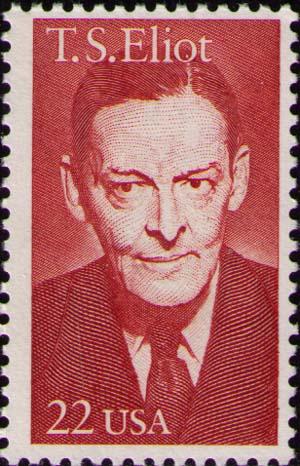You are here
ELIOT, T.S. (THOMAS STEARNS) (1888-1965)
-
Manuscripts
Manuscript materials related to T.S. Eliot can be found primarily in the following collections:
T.S. Eliot Collection (C0896)
T.S. Eliot Letters to Emily Hale (C0686) (Opening January 2, 2020 - See Below for Access Information)
Sylvia Beach Papers (C0108)
T.S. Matthews Papers (C1131)
Selected Papers of Geroge Seferis (C0816)A search of the finding aids database will return further relevant results.
The collection of T.S. Eliot Letters to Emily Hale (C0686) will open for research use on Thursday, January 2, 2020. By agreement between Princeton University Library and Emily Hale, the letters have remained closed in Special Collections since 1956. More information about how the library acquired the letters can be found on the blog of the Manuscripts Division. There is much excitement about the opening of this collection, and all of our prospective researchers will be given equal opportunity to view the materials.
For preservation, and to facilitate the anticipated high demand for access, the collection is currently being fully digitized. Surrogate copies (in high-quality paper facsimile or digital format), as well as original documents, will be made available to researchers on a first-come, first-served basis, beginning at 9:00 AM on January 2nd.
Access to the originals and facsimiles, which have been organized chronologically, will follow our standard reading room policies, which allow for one box at a time per researcher. Multiple researchers may view different boxes within the collection at the same time. A researcher who opts to consult digital surrogates will have access to the entire collection at once, via a designated reading room laptop.
At this time, due to copyright law, we are only able to provide reading room-based access to the digital and paper facsimile copies.
Before visiting, we recommend that you create a Special Collections Research Account. While you can submit requests through the collection finding aid ahead of your visit, no materials will be paged until you arrive at our department and have been signed into the reading room.
First-time visiting researchers will need to stop at the Access Office in the lobby of Firestone Library (which opens at 8:30 AM, Monday-Friday) to obtain Special Collections patron access cards. Once your card has been issued, please take the stairs/elevator down to C-floor, where you will find the Special Collections department. First-time researchers from within the Princeton University community may use their university ID cards to access the reading room.
As a reminder, all food (including gum), drink, and personal belongings (such as bags, coats, laptop sleeves, pens, books, notebooks, cameras) must be stowed in the patron lockers available just outside the department.
At this time, no self-service reference photography either with a camera, cell phone or tablet will be allowed. As such, no cameras, cell phones, or tablets are permitted in the reading room. You may bring your laptop. Paper and pencils will be provided by reading room staff for handwritten notes.
The Special Collections Department is open Monday-Friday 9:00 AM-4:45 PM. Paging (retrieval of materials) takes place every half hour, starting at 9:15 AM, with the last paging cycle at 4:15 PM.
We appreciate your patience and understanding as we do our best to offer equitable access to, as well as proper care and handling for, this important collection.
If you have any questions, please feel free to contact us.
-
Rare Books
For particulars refer to: Donald Gallup. T.S. Eliot. A Bibliography. (New York, 1953). (Revised edition published in 1969). A copy of Gallup's bibliography checked for the Library's holdings and giving call numbers is available at [(ExB) 3728.287.037.21].
For a collection of periodicals in which his works appeared, see the collection entitled Miscellaneous works by T. S. Eliot, 1925-1948, which contains journal issues [(Ex) PS3509.L43 A6 1925q].


